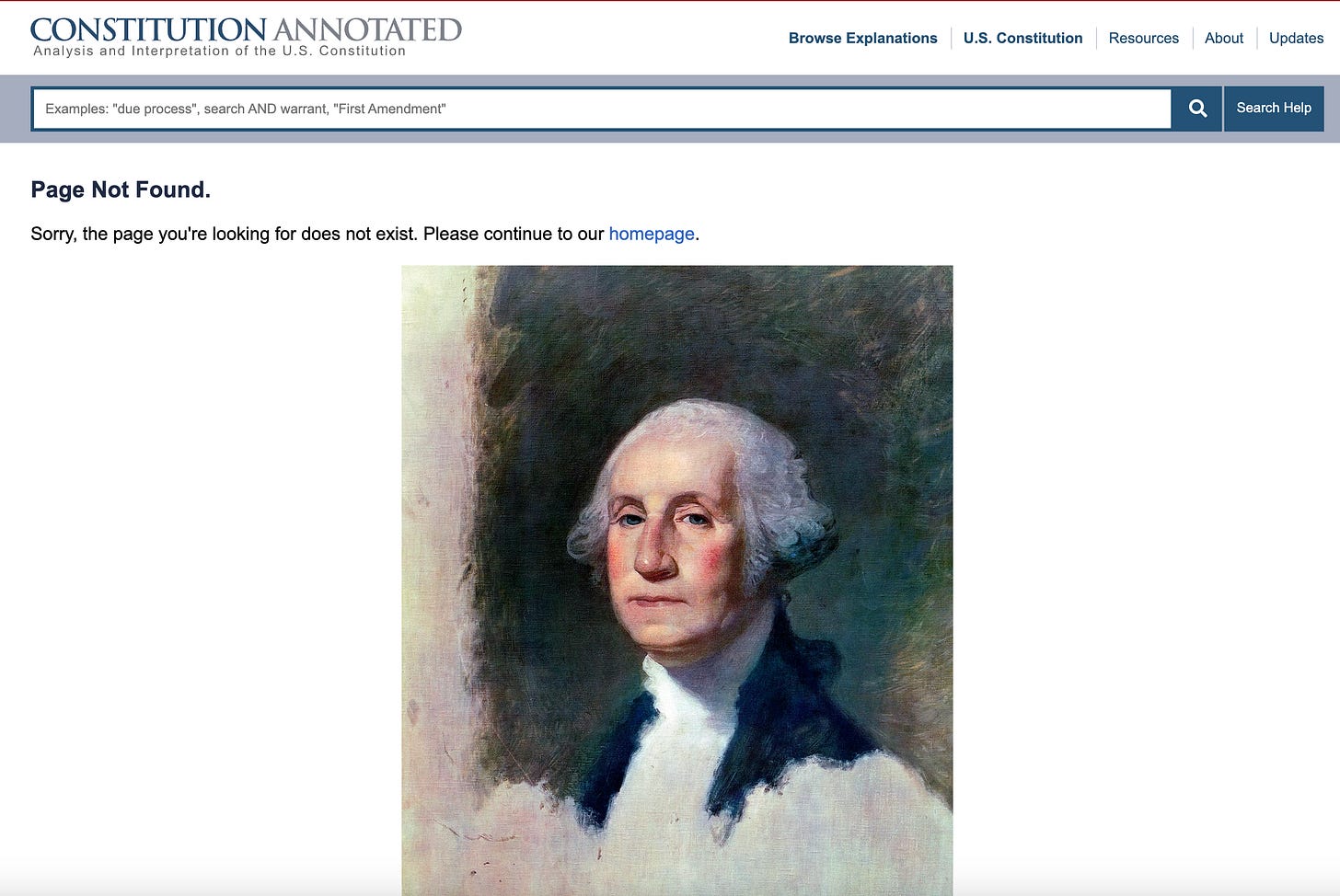I have not seen anyone report on this yet, but I was recently on the website Constitution.Congress.Gov, a government-funded and government-run website that outlines the entire United States Constitution. And I just noticed something extremely concerning: Article I, Section 9 and Article I, Section 10 of the United States Constitution have been completely removed.
No major media outlet has reported on this, so I began digging myself into why these two critical sections have been removed from the site. Constitution.Congress.Gov is a government-run website operated by the Library of Congress and the United States Copyright Office—both under the purview of the Trump Administration.
This is original reporting — and I’m not stopping. In just the past few days, TikTok has intensified its suppression of my work, forcing people to unfollow me without consent and gutting the reach of my news reports. If you value independent journalism that powerful platforms are trying to silence, subscribe today. Let’s build something they can’t erase, censor, or shut down.
What Happens When You Try to Access the Missing Sections
When you click on either Section 9 or Section 10 on this official government website, the content is gone. There’s no explanation, no notice, and no archived text—just a broken link where a foundational part of the U.S. Constitution should be.
The Full Text of Article I, Section 9
For context, Article I, Section 9 covers some of the most important legal protections in the Constitution, including the Writ of Habeas Corpus:
“The Migration or Importation of such Persons as any of the States now existing shall think proper to admit, shall not be prohibited by the Congress prior to the Year one thousand eight hundred and eight, but a Tax or duty may be imposed on such Importation, not exceeding ten dollars for each Person.
The Privilege of the Writ of Habeas Corpus shall not be suspended, unless when in Cases of Rebellion or Invasion the public Safety may require it.
No Bill of Attainder or ex post facto Law shall be passed.
No capitation, or other direct, Tax shall be laid,[unless in Proportion to the Census or Enumeration herein before directed to be taken.5
No Tax or Duty shall be laid on Articles exported from any State.
No Preference shall be given by any Regulation of Commerce or Revenue to the Ports of one State over those of another: nor shall Vessels bound to, or from, one State, be obliged to enter, clear, or pay Duties in another.
No Money shall be drawn from the Treasury, but in Consequence of Appropriations made by Law; and a regular Statement and Account of the Receipts and Expenditures of all public Money shall be published from time to time.
No Title of Nobility shall be granted by the United States: And no Person holding any Office of Profit or Trust under them, shall, without the Consent of the Congress, accept of any present, Emolument, Office, or Title, of any kind whatever, from any King, Prince, or foreign State.”
That section is now inaccessible on the official site. Click here to try yourself.
The Full Text of Article I, Section 10
Article I, Section 10 addresses limits on state powers:
“No State shall enter into any Treaty, Alliance, or Confederation; grant Letters of Marque and Reprisal; coin Money; emit Bills of Credit; make any Thing but gold and silver Coin a Tender in Payment of Debts; pass any Bill of Attainder, ex post facto Law, or Law impairing the Obligation of Contracts, or grant any Title of Nobility.
No State shall, without the Consent of the Congress, lay any Imposts or Duties on Imports or Exports, except what may be absolutely necessary for executing it’s inspection Laws: and the net Produce of all Duties and Imposts, laid by any State on Imports or Exports, shall be for the Use of the Treasury of the United States; and all such Laws shall be subject to the Revision and Controul of the Congress.
No State shall, without the Consent of Congress, lay any Duty of Tonnage, keep Troops, or Ships of War in time of Peace, enter into any Agreement or Compact with another State, or with a foreign Power, or engage in War, unless actually invaded, or in such imminent Danger as will not admit of delay.”
This section, too, is now missing from the same government-run website. Click here to try yourself.
Why This Matters
Whether intentional or accidental, the removal of these sections is alarming. They address some of the most fundamental checks on government and state power. The Writ of Habeas Corpus, limits on ex post facto laws, prohibitions against states coining money or entering into treaties—all are foundational safeguards.
If this was intentional, the implications are serious. If it was an accident, it must be corrected immediately. As it stands, the Trump Administration cannot quietly take down pages from a government website without the public’s awareness or explanation.
A Call for Transparency
I’m writing this piece in the hope that it gains traction with major media outlets and prompts either the restoration of these sections or an official explanation for their removal. The public deserves clarity—and the full, unaltered text of its Constitution.
Update: The Library of Congress issued a statement: “It has been brought to our attention that some sections of Article 1 are missing from the Constitution Annotated website. We’ve learned that this is due to a coding error. We have been working to correct this and expect it to be resolved soon.”
I will provide you more updates as I get them.











